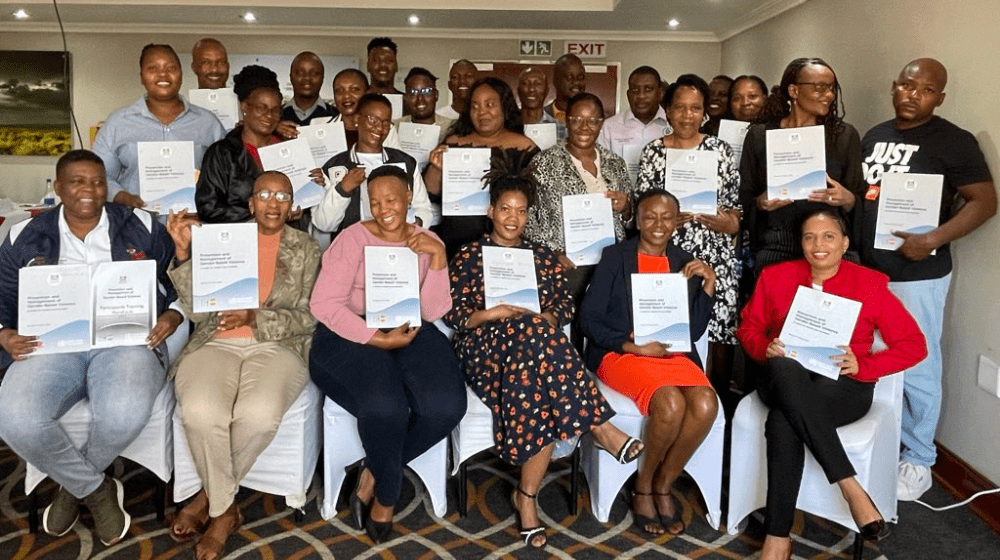Mahalapye, Botswana- Over 30 healthcare professionals; general nurses, midwives, family nurse practitioners and social workers representing various districts, are better equipped to respond to gender-based violence in the healthcare sector. The United Nations Populations Fund (UNFPA) partnered with the Ministry of Health to conduct a week-long training of trainers to reorient them on the revised protocol, renamed “Prevention and Management of Gender-Based Violence: A Guide for Health Care Providers.”
Violence against women continues to be a major public health problem and a violation of women’s human rights. While the government of Botswana has strengthened efforts to prevent and respond to gender-based violence (GBV), the 2018 Botswana National Relationship Study found that: 37% of the women reported experiencing GBV at least once in their lifetime including intimate partner and non-partner violence; 30% of men reported having perpetrated GBV in their lifetime; and women of reproductive age were more likely to experience intimate partner violence than older women with 15% of women experiencing GBV during pregnancy.
To advance the Government of Botswana’s commitment towards addressing and reducing GBV, UNFPA jointly with WHO in 2023 supported the development of a Facilitators Guide, which is intended for use in facilitating the implementation of the Revised Guidelines by building the skills and knowledge of health workers in the prevention and management of gender-based violence.
The National GBV Strategy highlights the key role of the health sector as a critical entry point for addressing GBV, not only as a means for treating victims and survivors but also for prevention. It underscores the need to strengthen the capacities of health-care workers to prevent and respond to GBV and provide strong referrals to other essential services, such as the police, justice system, and social services, the collection and presentation of forensic evidence, and giving evidence in a court of law. The revised protocols and service standards are therefore intended to improve the quality of care provided by health-care providers and the overall health sector response to GBV in Botswana. It is targeted at guiding all stakeholders in the healthcare sector, including the private sector, non-governmental organizations (NGOs), and government departments, on the provision of gender-sensitive and culturally appropriate sexual reproductive health (SRH) services. It also aims to assist the health care workers in identifying, managing, and referring victims or survivors of GBV appropriately, including screening and identification, examining, and providing comprehensive services according to national guidelines.
This guideline is an update of the previous protocols and service standards, which were developed in 2011. The revised guidelines are aligned with the current national implementation frameworks and adaptations to regional and global standards for strengthening the GBV response and its integration in SRH and HIV services.
"It is critical that healthcare staff not only recognise their responsibility in reacting to violence, but also have the skills required to give an effective response,”explained one of the trainers from the Ministry of Health’s SRH Division Ms. Galaletsang Mudongo. She emphasized that with adequate training, healthcare providers may identify survivors and provide life-saving support and care for them.
Matsae Balosang from UNFPA noted, "Encouraging coordinated service delivery for survivors necessitates collaboration with various ministries. Fostering multi-sectoral collaborations increases rapport and knowledge of each partner's role in proving care to gender-based violence victims/survivors."
By using a training of trainers approach, these participants, who have acquired the technical competency and capacity to provide first-line support to survivors of gender-based violence (GBV), are expected to undertake similar trainings in their districts.


